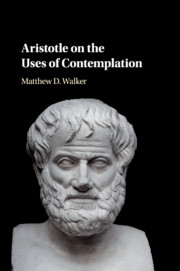
- Cited by 8
-
Cited byCrossref Citations
This Book has been cited by the following publications. This list is generated based on data provided by Crossref.
LEHOUX, DARYN 2019. Why does Aristotle think bees are divine? Proportion, triplicity and order in the natural world. The British Journal for the History of Science, Vol. 52, Issue. 3, p. 383.
2019. Books Received. The Classical Review, Vol. 69, Issue. 1, p. 341.
Chokvasin, Theptawee 2021. Love and Friendship Across Cultures. p. 141.
Zierholz, Steffen 2021. Galileocontemplator caeli. Res: Anthropology and aesthetics, Vol. 75-76, Issue. , p. 183.
Flores, Juan Carlos 2022. Ancient Love of Wisdom and its Medieval Transformation. History of Philosophy Quarterly, Vol. 39, Issue. 3, p. 217.
Otteson, Michael 2022. Courage in Aristotle’s Theory of the Good. The Journal of Value Inquiry,
Gottlieb, Paula 2022. Aristotle's Ethics.
Symons, Xavier and VanderWeele, Tyler 2024. Aristotelian Flourishing and Contemporary Philosophical Theories of Wellbeing. Journal of Happiness Studies, Vol. 25, Issue. 1-2,
- Publisher:
- Cambridge University Press
- Online publication date:
- May 2018
- Print publication year:
- 2018
- Online ISBN:
- 9781108363341
- Subjects:
- Classical Studies, Logic, Ancient Philosophy, Philosophy




